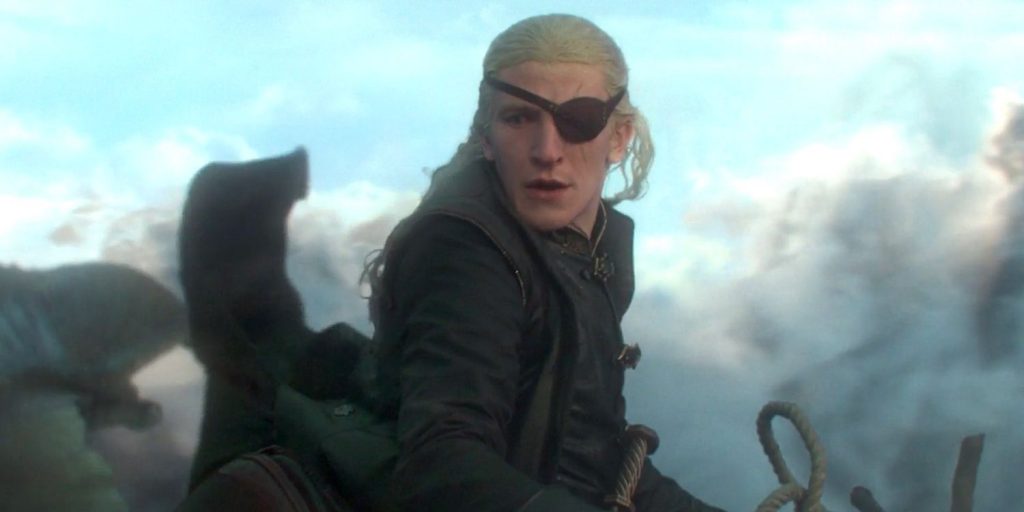After the devastating season finale slaughter over Storm’s End, House of the Dragon showrunner Ryan Condal talks about the nuanced portrayal of Aemond Targaryen. Aemond has been an interesting character ever since the beginning of the series. He has demonstrated political acumen by acknowledging that he would uphold his obligation to the Greens, but he has also shown a rogue tendency by claiming Vhagar before Laena Velaryon’s daughter could. He is Alicent Hightower’s second son. These are only two examples that show his intelligence as well as his capacity for mayhem.
Aemond’s early years were marked by bullying from his brother and the two Targaryen children, Jacaerys and Lucerys, as well as from Rhaenyra herself. A rivalry between Alicent’s son and Rhaenyra’s two boys would undoubtedly have disastrous results, as seen by their taunting of Aemond over not having a dragon when he was younger and their battle that cost Aemond his eye after he claimed Vhagar. Aemond swiftly transforms into a terrifying figure due to his resentment against his nephews, riding Westeros’ most fantastic dragon and honing his combat abilities.
Changes in the final book of Aemond Targaryen’s House of the Dragon are explained
Readers of Fire & Blood might not have anticipated how complexly young Lucerys’s tragedy unfolded. In George R. R. Martin’s book, Aemond hunts down and kills his nephew on purpose as a form of retaliation. However, the show’s depiction of the events stresses Aemond’s relative inexperience with real battle and bloodshed while retaining his scary and chaotic personality and his desire for Lucerys’ eye as a gift for his mother. Both Arrax and Vhagar demonstrate the pride and impulses of the blazing animals as they engage in conflict against the intentions of their riders, evoking the words of King Viserys I in the first episode of the series, “The concept that we rule the Dragons is an illusion.”
This modification does give Aemond more depth and better aligns with how the program has chosen to portray the bonds between dragons and their riders. Additionally, it maintains the notion that the Westerosians of this age are woefully unprepared for the horrific realities of battle. In the end, as the story develops in House of the Dragon season 2, Aemond is simpler to empathize with, and the time spent highlighting his commitment to his mother and sister may still be commendable traits. On the other hand, it could be argued that this change, along with the notion that Viserys and Alicent got mixed up and started the Dance of Dragons, demonstrates the authors’ excessive preference for ambiguity and that they should be more open to exploring the villainous sides of specific characters from the novel.
